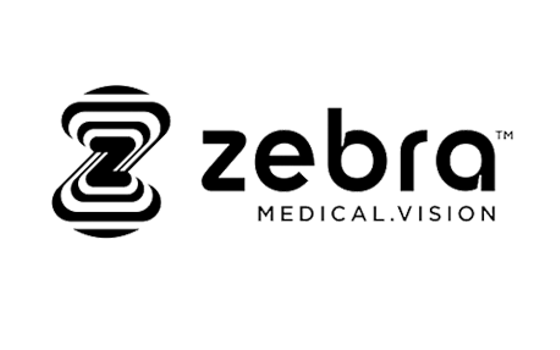 Zebra Medical Vision, the leading machine learning imaging analytics company, announces that the company has been granted the CE approval and subsequent release of its Deep Learning Analytics Engine in Europe, as well as regulatory clearance and product release in Australia and New Zealand. The company's Analytics Engine provides automated analysis of imaging data, helping radiologists provide faster, more accurate and comprehensive reports. The Engine can be integrated into PACS, RIS, Reporting and EMR systems, providing a seamless flow for physicians.
Zebra Medical Vision, the leading machine learning imaging analytics company, announces that the company has been granted the CE approval and subsequent release of its Deep Learning Analytics Engine in Europe, as well as regulatory clearance and product release in Australia and New Zealand. The company's Analytics Engine provides automated analysis of imaging data, helping radiologists provide faster, more accurate and comprehensive reports. The Engine can be integrated into PACS, RIS, Reporting and EMR systems, providing a seamless flow for physicians.
AI in healthcare has been gaining significant support and adoption over the past 12 months. In a recent Research and Markets report, it was estimated that Artificial Intelligence in healthcare will witness a CAGR of 62.2% between 2016-2022. The Zebra-Med Engine currently analyzes CT data for signs of:
- Fatty Liver
- Excess coronary calcium
- Emphysema
- Low bone density
- Vertebral compression fractures
In addition, more than a dozen new algorithms that detect life threatening diseases will be released in the coming months. Zebra-Med's engine can be deployed in both cloud and on-premise configurations, and its insights help radiologists provide more comprehensive, consistent reports. The company's unique platform allows healthcare organizations to discover chronic diseases earlier, giving those organizations the opportunity to establish preventative care programs, improving care while reducing the overall patient treatment costs.
"Machine Learning will change the way Radiology is practiced in the coming years," says Prof. Gabriel Krestin, Chairman of the Department of Radiology and Nuclear Medicine at Erasmus MC, University Medical Centre Rotterdam, the Netherlands. "I believe it will make radiologists more productive, and I also believe that new use cases and value propositions will emerge as the technology is implemented widely. It is a very exciting time for radiology."
"These recent regulatory approvals allow us to continue driving adoption of our Analytics Engine globally, where we see significant interest in countries that have a problematic ratio of radiologists per capita. Providing tools that assist them in delivering better care is critical and is the driving force behind our mission," says Elad Benjamin, Co-Founder and CEO at Zebra-Med. "We have already begun working with luminary university hospitals in Europe, and will continue to expand our footprint across the region."
About Zebra Medical Vision
A FastCompany Top 5 Machine Learning startup, Zebra Medical Vision uses machine and deep learning to create and provide next generation products and services to the healthcare industry. Its Imaging Analytics Platform allows healthcare institutions to identify patients at risk of disease, and offer improved, preventative treatment pathways to better patient care. Headquartered in Kibbutz Shefayim, Israel, the company was founded in 2014 by co-founders Eyal Toledano, Eyal Gura, and Elad Benjamin, and funded by Khosla Ventures, Marc Benioff, Intermountain Investment Fund, OurCrowd and Dolby Ventures. For more information visit www.zebra-med.com.